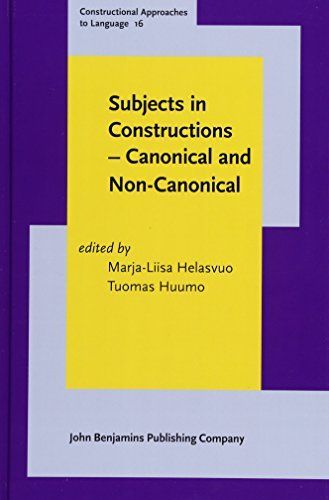
Subjects in Constructions – Canonical and Non-Canonical
This volume analyzes constructions with non-canonical subjects in individual languages and cross-linguistically, drawing on insights from cognitive and discourse-functional linguistics. Prototypical subjects have often been characterized in terms of their semantic, syntactic and discourse features, such as animacy, agentivity, topicality, referentiality, definiteness and autonomy of existence of the subject referent. A non-canonical subject is one that lacks some of these features. This may be reflected in its meaning, grammatical coding, and/or discourse function. In discussing non-canonical subjects in individual languages and cross-linguistically, the chapters in the volume address the following more general topics: What kinds of grammatical, semantic and discourse criteria can be used to distinguish subjects from non-subjects? To what extent are subject criteria construction-specific? What kinds of constructions have non-canonical subjects? What are the semantic and discourse functions of constructions with non-canonical subjects? Are subjects which are grammatically non-canonical also atypical in terms of their discourse features?